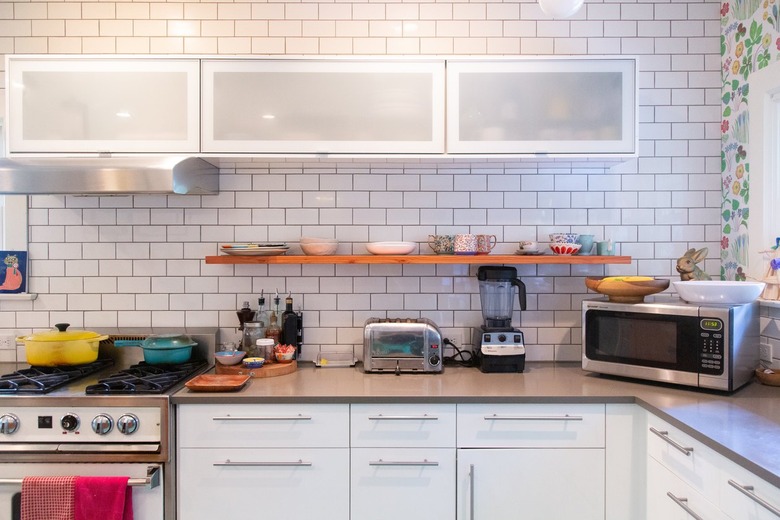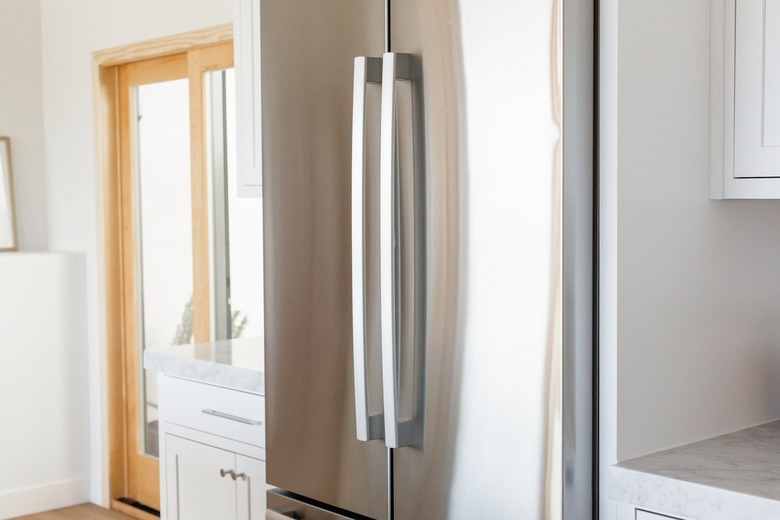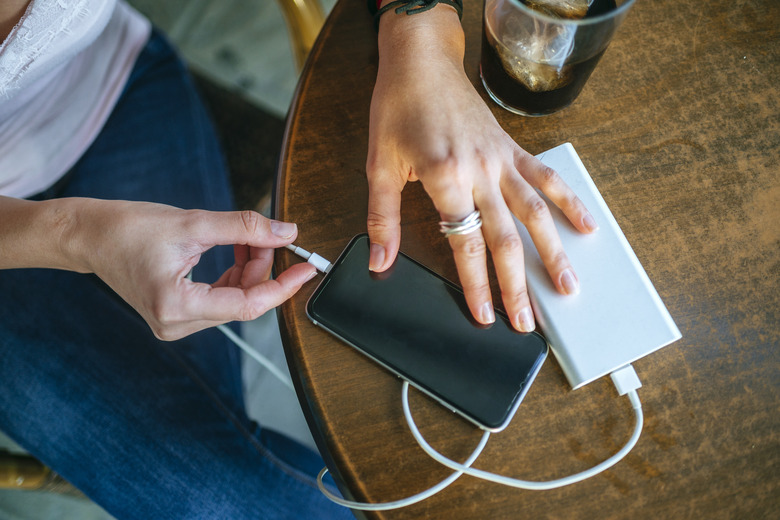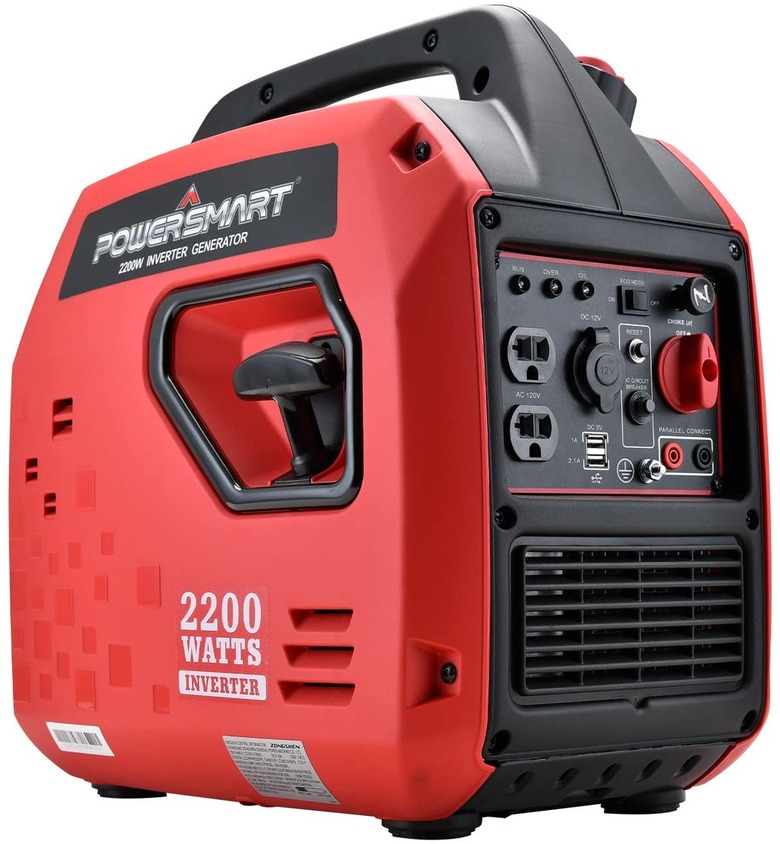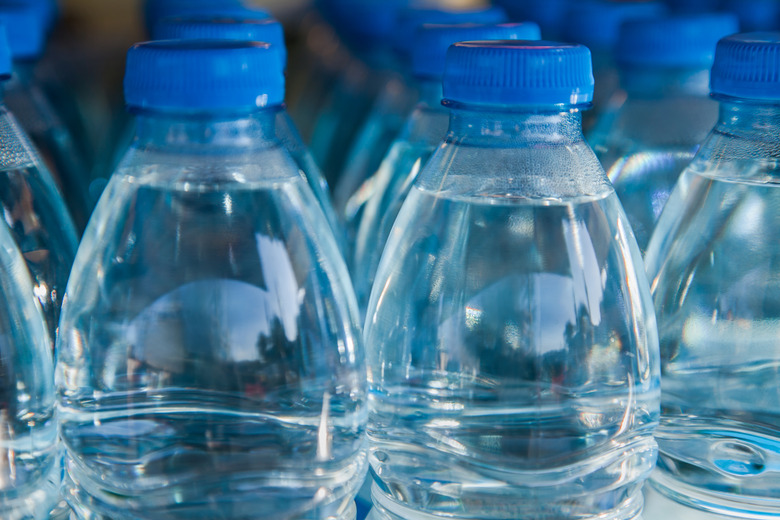Surviving A Power Outage Safely At Home
We may receive a commission on purchases made from links.
While a brief power outage can create at least a few minor inconveniences, an extended power outage lasting days at a time brings an entirely new set of challenges. Simple things like the ability to freeze food or to cook indoors — or simply keeping cozy and warm — are temporarily put on hold. The next time you're affected by a power outage, make sure you're prepared and follow this advice to get yourself and your family through safely and comfortably.
Unplug Appliances and Electronics
Unplug Appliances and Electronics
While it's tempting to leave things plugged in so they're in operating condition once the power is back up and running, it's better to unplug your electronics while the power is out. Power surges are common during outages and even while the power company repairs major issues. These cause brief spikes in voltage that could harm delicate electronics, such as computers and TVs, since they overload their circuitry. Any appliance with electronic components, such as the microwave, should also be unplugged. Unplugging these items also creates less load when the power comes back on, which helps prevent blackout or brownout conditions.
During a power outage, you should unplug anything that has an electrical component, including:
- Microwaves
- TVs
- Computers
- Toasters or toaster ovens
- Blenders
- Electric washer/dryers
- Other electronic devices
If you expect the power outage to last several days, unplug other items as well, such as floor and table lamps. Turn off the lights or fans in all rooms. Consider leaving one light on (like in the bedroom or living room) so that you'll know as soon as the power comes back on.
Tip
Prepare for a future power outage by outfitting your electronic plugs with surge protectors. These handy plug-ins are meant to protect your electronics from damage during a power surge. You do not need to unplug them in a power outage. But be sure to get specific surge protectors, and not just power strips, which look similar but don't offer protection against power surges.
Keep Your Fridge and Freezer Closed
Keep Your Fridge and Freezer Closed
Keep the refrigerator and freezer doors closed whenever possible during a power outage (of course, you can open them briefly when you need to access food or water). Both refrigerators and freezers are excellent at insulating, much like a cooler, so they can keep your items chilled or frozen for up to four days as long as you keep the doors closed. Open these doors only if you need something from within. If it's clear that the food will spoil soon, try to use items that could be cooked on a grill outdoors, such as frozen veggie burgers. Offer some thawing food to neighbors who are also in your situation if it's clear that you can't use everything in time and if you're sure that the food is still good.
If stores nearby are still open and are selling ice, keeping perishable items in a cooler prolongs their life a little. While at the store for ice, grab some foods that don't require cooking or refrigeration, such as nut butters, bread and jugs of water. If you have too much chilled food to store in a cooler, perhaps friends or relatives in a neighboring town can store some for you if they have power.
It's also a good idea to stock up on nonperishable foods, such as canned beans, well ahead of an outage (or when weather reports detect serious conditions for your area a few days ahead of time). Canned goods that can be eaten at room temperature or heated on a camp stove or grill last for years in a pantry, so it's best to keep a few days' supply on hand at all times for each person in your home in case it's needed. Being prepared is often the best line of defense for outage and weather-related situations.
Keep a Phone Charged
Keep a Phone Charged
Whenever possible, avoid using your phone's flashlight app, as this quickly drains the battery. Keep battery-powered flashlights, charged rechargeable flashlights and candles in jars in an emergency kit, ready to go for any outage scenario. Since you can't charge your phone, laptop or tablet in the house during an outage, you still have a few options to keep such devices charged for a while. If neighbors or relatives have power, ask them to allow you to charge some devices for a while. A library with power may also allow you to charge your phone or computer.
Charging your devices in your car is another sometimes simpler option. Many newer vehicles have USB ports that accept the USB cable you normally use to charge your devices. Charge your devices with the car running for a little while, such as on your way to pick up supplies from a store that still has power. Vehicles without a USB port often have a 12-volt electrical outlet — the same thing used for cigarette lighters in older cars. This requires a different type of charger that is still relatively easy to find in any store that sells chargers.
An emergency cell phone charger, essentially a packet of extra batteries to power your phone, is another option. Better still is a hand-crank radio that has a built-in phone charger, as this works no matter how long it has been sitting, whereas batteries may fail. This device also allows you to hear important weather and news updates, which is especially important during a series of serious storms. Many also have a built-in flashlight for such emergencies.
Generate Temporary Power
Generate Temporary Power
A portable, gas-powered generator is a godsend during a prolonged power outage. Though these are used to power indoor items during an outage, such as an electric space heater or a lamp, they should never be used indoors. Keep a backup generator at least 20 feet away from the home and venting away from windows and doors to prevent carbon monoxide poisoning. Any cooking stoves or grills should also be used outdoors and not on enclosed porches or in the garage to prevent similar issues and to reduce fire risks.
Owning a gas generator also means keeping cans of gasoline or propane tanks handy. Gas stations often shut down during outages, so you'll have to buy and store gas ahead of time. Gas has a relatively short shelf life of less than a year, so use and replenish the gas supply every couple of months to keep the canned gas fresh.
Make a Plan to Stay Warm or Cool
Make a Plan to Stay Warm or Cool
If your outage happens during the summer and it's not stormy outside, spending time outdoors may be more comfortable than sitting indoors without access to fans or air conditioning. This also gives you the chance to check in with neighbors and ensure everyone is safe. If it's excessively hot outside and in some areas of your home, spend as much time as possible in the coolest area you can find, such as in the shade outside in a breezy area or in your home's basement or coolest room. Close curtains on the sides of your home that are exposed to bright sunshine on a sunny day. Open windows on opposite sides of any room if possible to allow cross breezes if it feels hotter inside than outdoors.
If it's excessively cold outside, staying warm may be a bit more tricky and may require more of an emergency plan. Do not use a gas oven to heat your home, as this isn't safe. Dress in layers during the day and wear a hat and gloves inside if necessary. Close doors to rooms that you don't need to access or to rooms that feel overly drafty. Place rolled-up towels or draft blockers against exterior doors inside your home to keep cool air from blowing in. If you need to go outside, choose a door that will let in the least amount of cold air, such as the door to an attached garage or breezeway.
Encourage all your family members in the home to spend as much time as possible in the same selected room, as body heat will help keep the room a little warmer, which in turn keeps everyone warmer. Gather blankets and sleeping bags and layer them as needed. If you have a tent that can be opened indoors, use the tent as a sleeping area to maintain extra body heat on extremely cold days. Open the curtains since windows face direct sunlight during the day. Keep curtains closed in rooms you aren't using and in any area with drafty windows if direct sunlight isn't coming through them.
Access Clean Water
Access Clean Water
A natural disaster-related outage may cause problems with the local water supply, and water from your tap may not be safe to drink or even to wash dishes. If possible, contact your local supply company or government to find out if there is a boil alert or other out-of-the-ordinary issue associated with the water supply. Local authorities should have recommendations about how to deal with the specific water concerns affecting the area. In some cases, an agency or the community may have supplies of bottled water available at a designated pickup location nearby.
Do not drink or bathe in contaminated water. Purchase jugs of drinking water if possible or keep some on hand before a storm or severe weather hits if you know one is headed your way. An outdoors store or camping supply store may sell water purification tablets or kits that can be used in a pinch, assuming the store has power and remains open.

